A bead of mass 12kg starts from rest from A to move in a vertical place along a smooth fixed quarter ring of radius 5m, under the action of a constant horizontal force f=5N as shown. The speed of bead as it reaches the point (B) is [Take g=10ms−2]
![A bead of mass 1/2 kg starts from rest from A to move in a vertical place along a smooth fixed quarter ring of radius 5 m, under the action of a constant horizontal force f=5 N as shown. The speed of bead as it reaches the point (B) is [Take g=10 ms^(-2)]](https://d10lpgp6xz60nq.cloudfront.net/physics_images/DCP_V01_C09_E01_107_Q01.png)
14.14ms
7.07ms
5ms
25ms
The correct Answer is:(1)
Applying the work - energy theorem, we get
12×mv2−0=W1+W2
=F×R+mg×R
Topper's Solved these Questions
- WORK , ENERGY & POWER BOOK - NARAYNACHAPTER - WORK , ENERGY & POWER EXERCISE - EXERCISE -II (H.W)
75 Videos
- WORK , ENERGY & POWER BOOK - NARAYNACHAPTER - WORK , ENERGY & POWER EXERCISE - EXERCISE -III
54 Videos
- WORK , ENERGY & POWER BOOK - NARAYNACHAPTER - WORK , ENERGY & POWER EXERCISE - EXERCISE -1 (H.W)
60 Videos
- WAVESBOOK - NARAYNACHAPTER - WAVESEXERCISE - Exercise-IV
56 Videos
- WORK POWER AND ENERGYBOOK - NARAYNACHAPTER - WORK POWER AND ENERGYEXERCISE - Level-VI (Integer)
12 Videos
Similar Questions
A block of mass 10 kg is held at rest against a rough vertical wall [μ=0.5] under the action a force F as shown in figure. The minimum value of F required for it is (g=10m/s2)
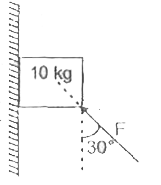
View SolutionA bead of mass m is released from rest at A to move along the fixed smooth circular track as shown in figure. The ratio of magnitudes of centripetal force and normal reaction by the track on the bead at any point P0 described by the angle θ(≠0) would

View Solution
Knowledge Check
A particle of mass 'm' moves with a constant speed along a circular path of radius r under the action of a force F .Its speed is given by
A√FrmB√FmrC√FrD√FmrA particle of mass M moves with constant speed along a circular path of radius r under the action of a force F. Its speed is
A√rFmB√FrC√FmrD√FmrConsider a quarter circular smooth rod AB fixed AB fixed in a vertical plane with centre of the circle at O. A bead of mass m slides without friction with the help of string starting from point A under the action of a constant force F=2gm as shown in figure.
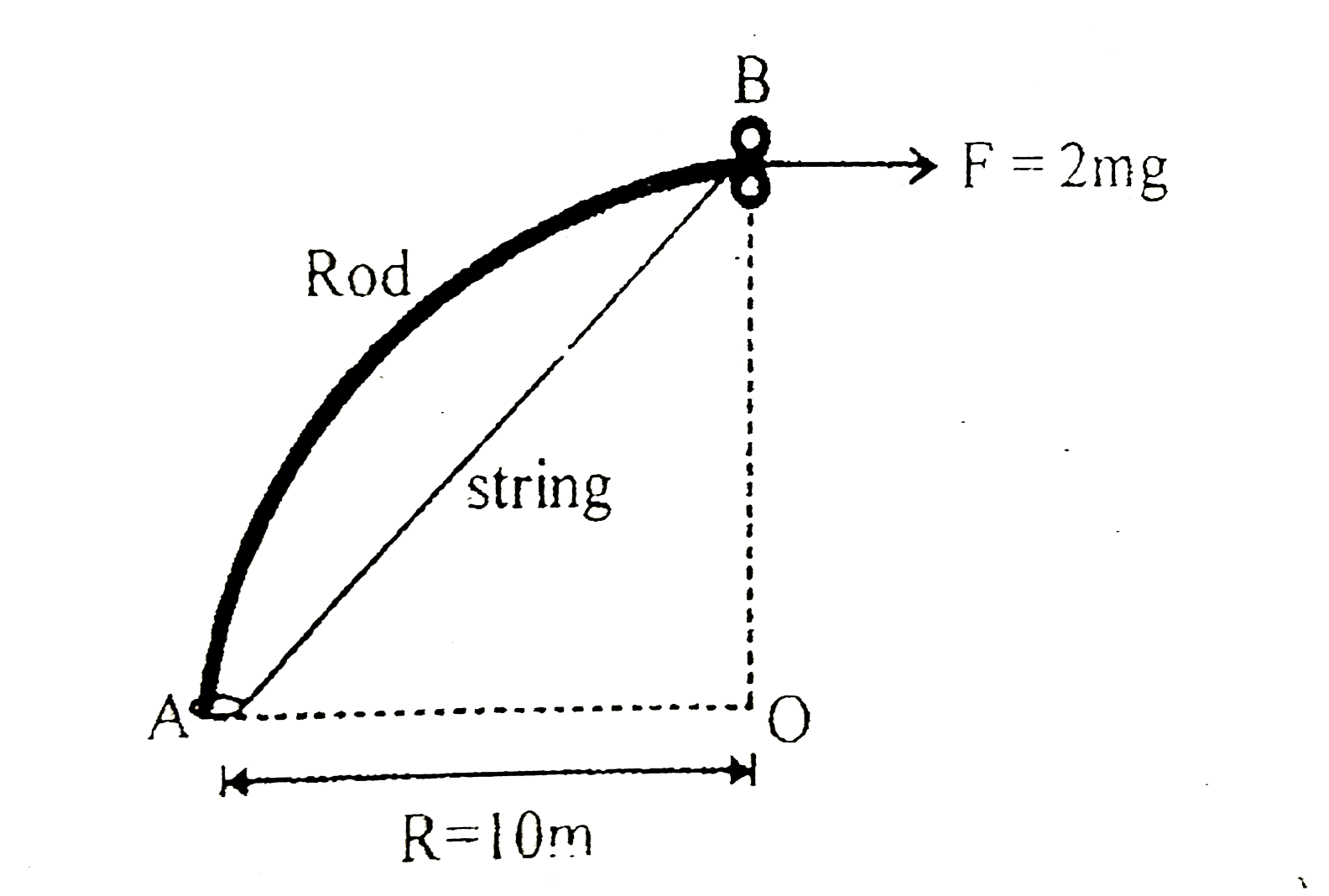
Work done by force F up till the moment when bead reaches at position B is : (Take m=√2kg )A100JB200JC400JD50J
A block of mass 2 kg initially at rest moves under the action of an applied horizontal force of 6 N on a rough horizontal surface. The coefficient of friction between block and surface is 0.1. The work done by the applied force in 10 s is (Take g=10ms−2)
View SolutionConsider a quarter circular smooth rod AB fixed AB fixed in a vertical plane with centre of the circle at O. A bead of mass m slides without friction with the help of string starting from point A under the action of a constant force F=2gm as shown in figure.
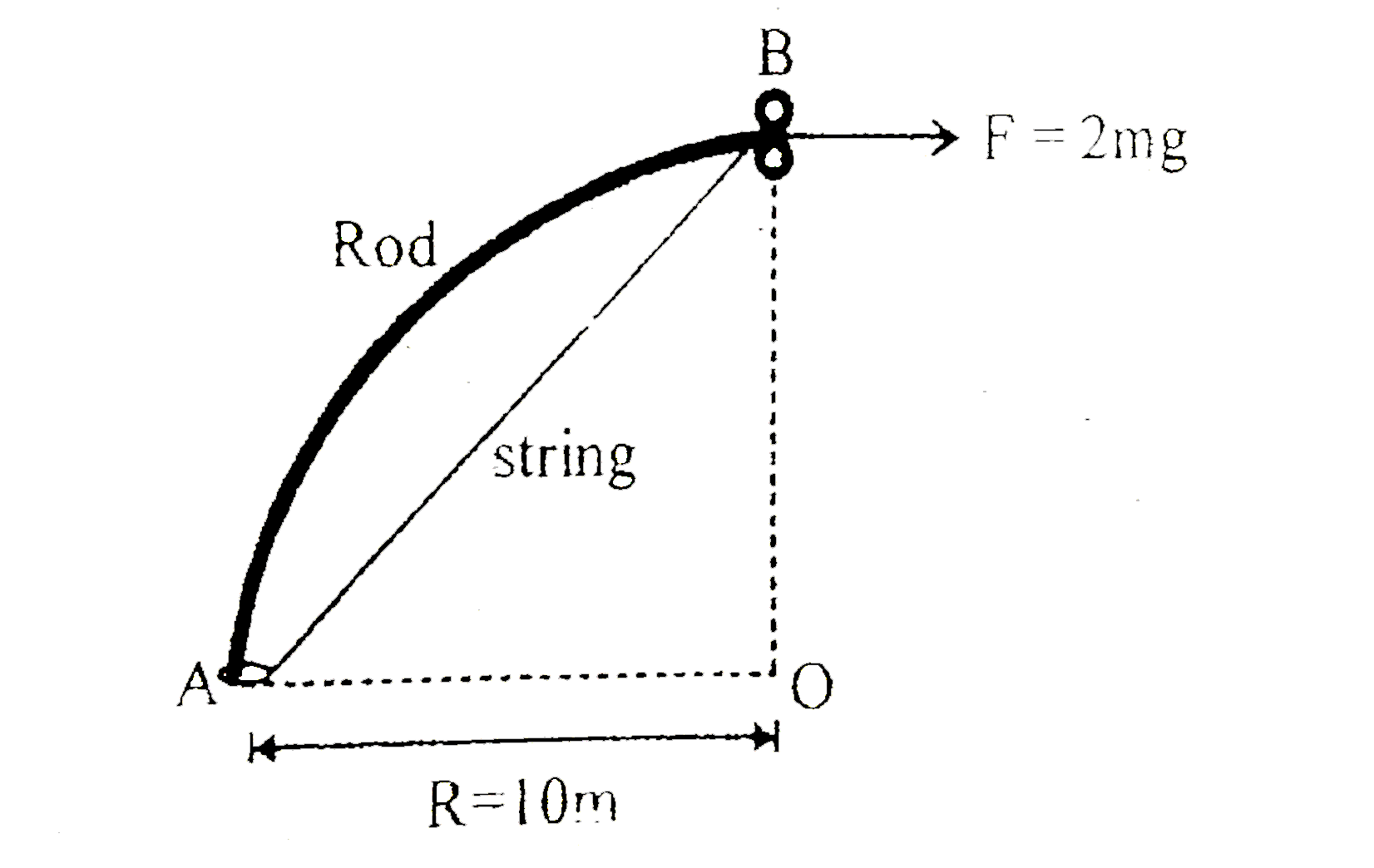
The velocity of bead when string makes an angle 30∘ with the horizontal is nearly :
View SolutionA ball of mass 1 kg moves inside a smooth fixed spherical shell of radius 1 m with an initial velocity v=5m/s from the bottom. What is the total force acting on the particle at point B
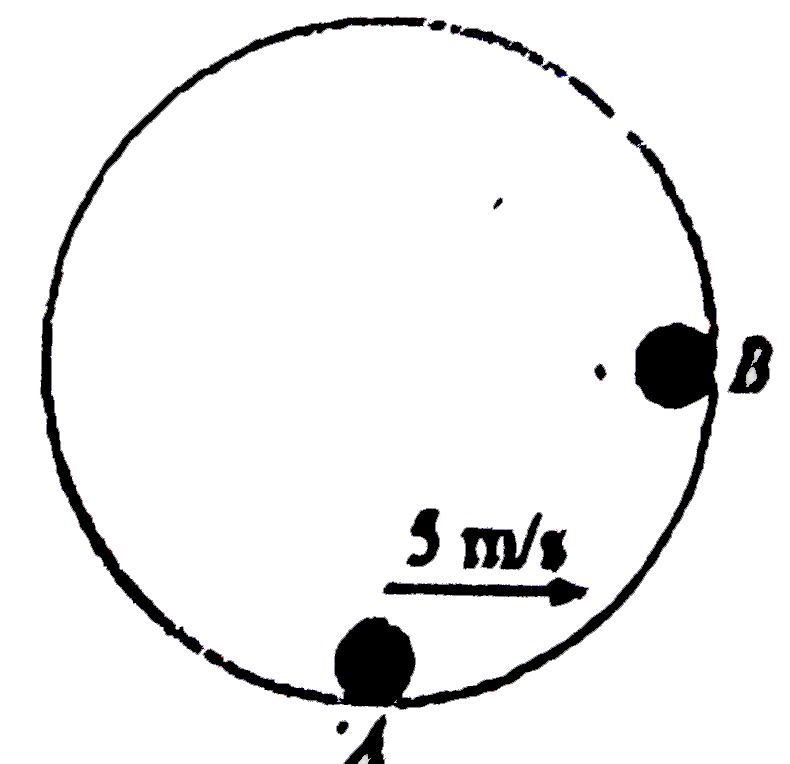
View SolutionA 20−kg block attached to a spring of spring constant 5Nm−1 is released from rest at A. The spring at this instant is having an elongation of 1m. The block is allowed to move in smooth horizontal slot with the help of a constant force 50N in the rope as shown. The velocity of the block as it reaches B is (assume the rope to be light)
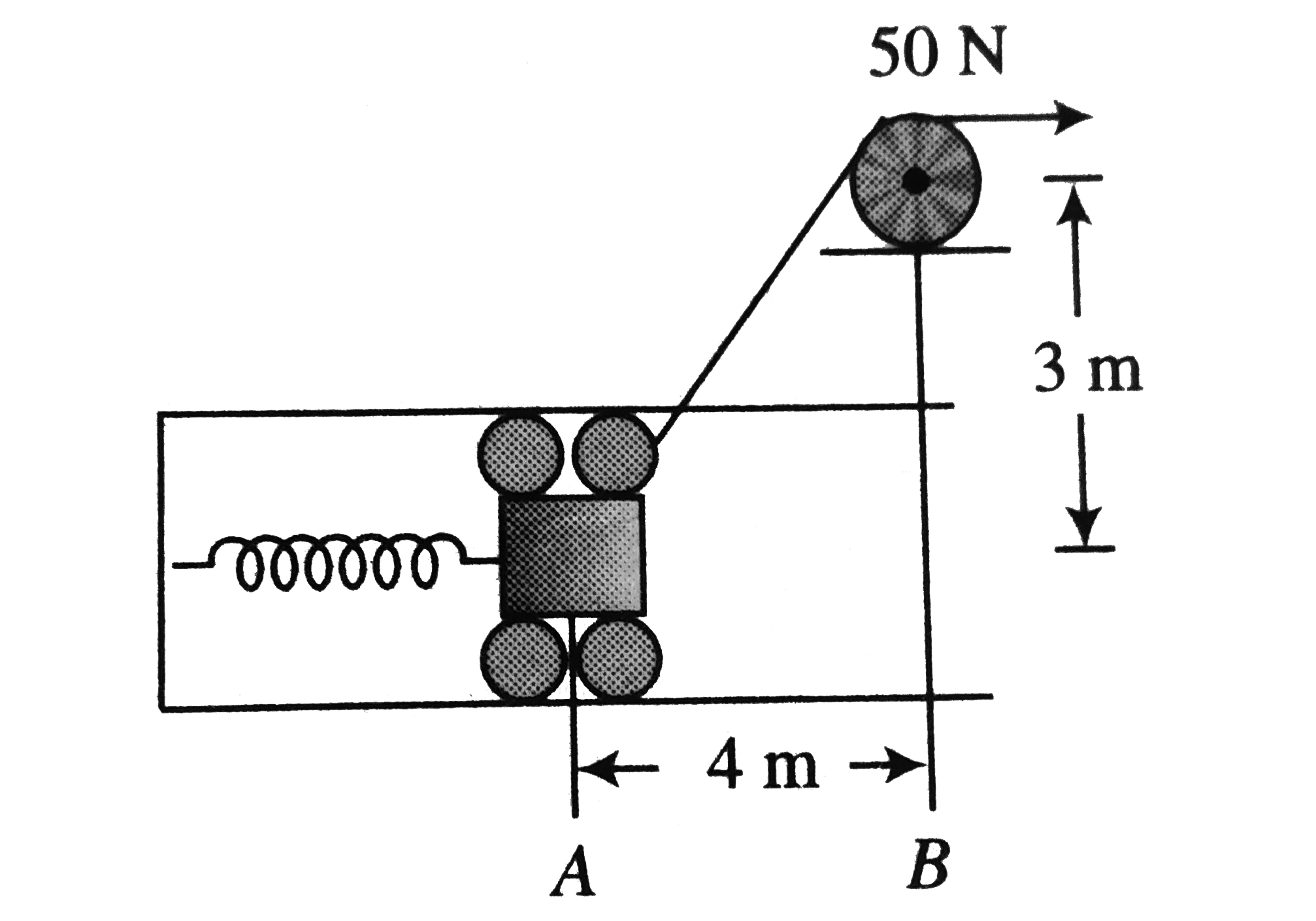
View SolutionA 10 kg block is pulled in the vertical plane along a frictionless surface in the form of an arc of a circle of radius 10m. The applied force is 200N as shown in the figure. If the block started from rest at A, the velocity at B would be:

View Solution
